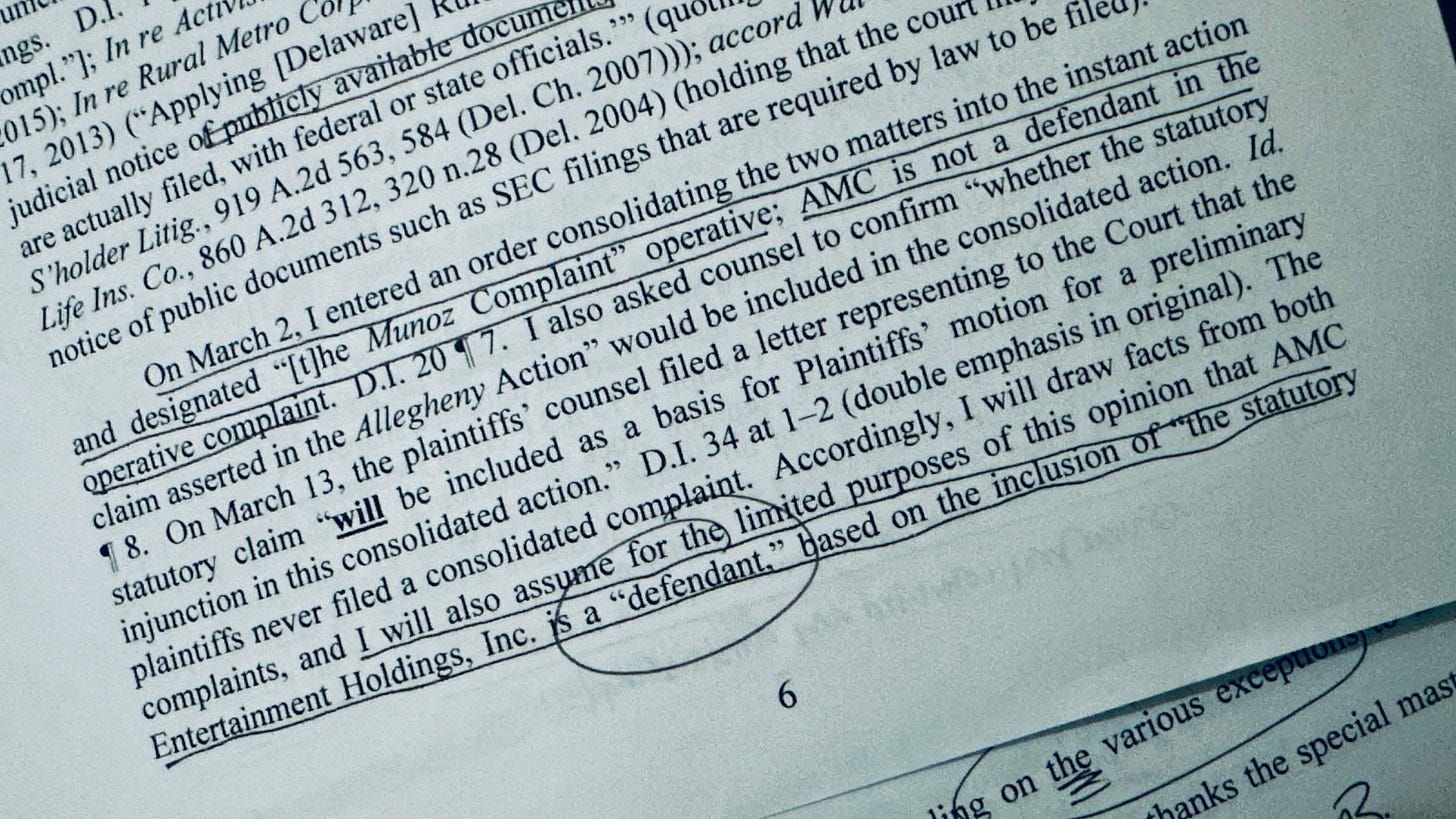AMC: I Can't Dismiss This Feeling I Have
Wake Me Up When September Ends
I am really tired, and I need to go to bed, but I also know that you are tired of hearing me talk about the filing of the consolidated complaint (or not), but I’m going to do it one more time. Because there’s something I think you might want to read, and this time, it’s from the highest Court in the land — not highest like bestest (because that’s the Delaware Court of Chancery), but highest like literally in the judicial hierarchy of things — as in not even SCoDE but actual SCOTUS (don’t ask me why I capitalize the “O” in “of” in SCOTUS and not in SCoDE, I just do — probably because otherwise it looks too much like it looks like it says scode instead of sko-deee.)
Anyhoo, I spent a while (no, I will not admit how long) this weekend trying to figure out if it really mattered that the plaintiffs have not filed a consolidated complaint, because there has been a not-insignificant amount of ink spilled over it, no, not just by me, and yes, I’ve been whinging about it, but also, the footnote I highlighted above is the last in a lineage of comments from MTZ that won’t stop playing on a loop in my mind, and now they are playing in frère jacques kind of tandem rounds with some other annotations she made in a different case in a recent opinion about how she can only drop so many hints or make so many ::cough, cough:: suggestions, and I feel like I’m doing way too much ::internal screaming:: for my own good lately, so I wanted to figure out if this whole thing is really a problem or not, and if so, how and in what ways.
All I know is that “for the limited purposes of this opinion” and scare quotes around the word “defendant” are not trivial comments and I’m so tired of people not taking this woman as seriously as I think she should be taken.
But procedurally, the whole thing seems to be a bit of an edge case and as far as Delaware law goes, it’s probably a real corner case (we’re a small, strangely shaped state with a lot of nooks and crannies, so that happens a lot). The defendant is providing stock consideration (already a pretty rare scenario to begin with for various reasons) and is one of the central recipients of the release (pretty normal even for a non-party like D&O insurers, ok, yeah), but also not being a party to the operative complaint in a consolidated set of cases (strange, but maybe not unprecedented, but is that just because no one ever really noticed or cared enough to think about it?), but the confluence of all three starts to make your head spin, and … does it matter or not for the purposes of actually dismissing the second case in the set of consolidated cases, at an obsessive procedural level?
I really want to know. I need to know. I also need to sleep, so let me cut to the chase.

